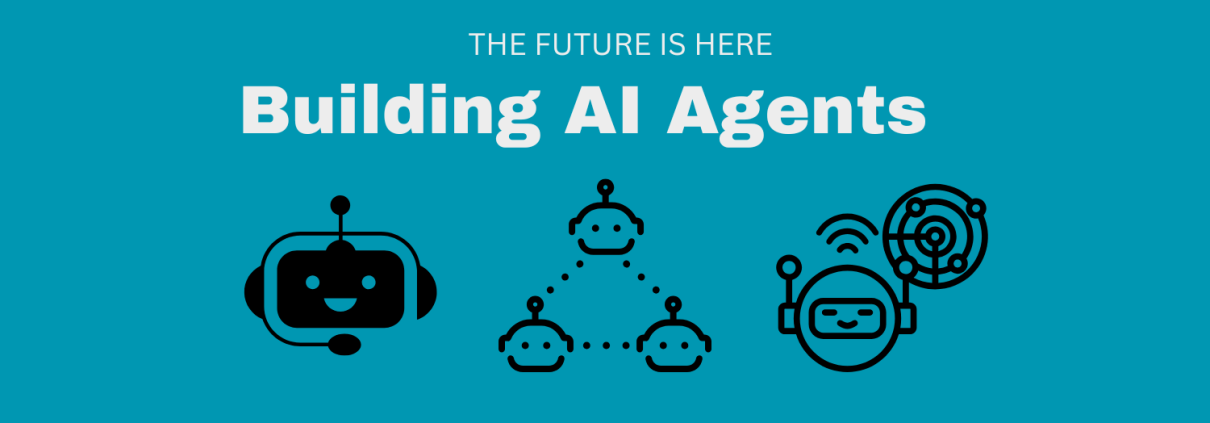Helping Your Teen Navigate the Future of AI Agents
The history of automation and how it applies to your teen
In my day job, I work with a lot of scientists and engineers. These are very specific, logical people. Often, when you ask them a “simple question,” you get a long answer. It’s common for these subject matter experts to begin with the history of an invention—because in their minds, the evolution of the idea explains the current state of things. To truly understand a breakthrough, you first have to understand the problems each iteration was trying to solve.
I’m approaching this article in much the same way. In order to understand AI agents—and their ability to predict our next need, schedule appointments, provide deep-dive analysis, and offer next-step recommendations—it helps to look back at the history of computation and data analysis.
So, without further ado, let’s dive in.
For the past 60 years, computer and automated technologies have steadily reshaped how we work, learn, and live.
The evolution of data storage
-
Paper files used to be the backbone of every business and school.
-
Then came the first computers, which allowed us to digitize information one keystroke at a time.
-
Next, individual desktops made data entry and storage a daily reality for offices around the world.
-
Then came the leap to cloud computing, where files were no longer tied to one machine but could be accessed anywhere.
AI agents take data from across the cloud and make powerful connections and predictions
And now? We’ve entered a new era. Using networked technology, AI agents (or bots) can search across all that connected data, make inferences, and even predict outcomes. Instead of just storing information, we’re building systems that can act on it.
This is the world our kids are stepping into. For six decades, we’ve been entering data into computers and then into the cloud. Today, we’re building bots that use this data to automate tasks, generate insights, and make predictions.
It feels like a massive shift—because it is. And if you’re raising teenagers who will graduate into this changing landscape, it raises the big question: How do we help them prepare for careers that don’t even exist yet?
Not every kid will be a techy, but they need to know how tech can help them scale
But here’s the good news: not every kid needs to go into tech to thrive in this new world. What matters is understanding how AI agents can support whatever path they choose. Teens who wants to be a fitness coach, landscaper, therapist, artist, or even enter the medical profession – they can use AI to automate scheduling, marketing, bookkeeping, and client communications. It’s an incredible time in history to build an independent business—and AI agents are the tools that can make that possible. Even if your child isn’t “the tech,” they’ll benefit from learning the basics of business and seeing how automation can free them up to do more of the work they love.
What Are AI Agents?
Think of an AI agent as a “digital worker” that doesn’t just answer questions like ChatGPT, but takes action on your behalf. For example:
-
Scheduling a doctor’s appointment for you.
-
Running a small online store (managing inventory, marketing, even customer responses).
-
Monitoring financial markets and making simple trades.
This isn’t sci-fi anymore. Creators like Productive Dude on YouTube explain how these agents are evolving week by week. His content shows how accessible this tech is becoming, not just for big companies but for everyday people.
Why Parents Should Pay Attention
When I was starting my career, the focus was on learning Microsoft Office and maybe a little coding. Today, our kids are facing a different reality:
-
Automation is expanding into creative, administrative, and even leadership tasks.
-
Collaboration with AI will be as common as learning to type was for us.
-
Entrepreneurship is shifting—teenagers could run “side hustles” with the help of AI agents before they ever graduate.
How to Guide Your Teen in an AI World
You don’t need to become an AI engineer to prepare your kids. Instead, focus on helping them develop skills that pair well with AI:
-
Problem-Solving
AI can execute, but it still needs humans to define the right problem to solve. Encourage your teen to ask “why?” and to think critically. -
Communication
Writing clear prompts, instructions, or project goals is becoming a vital skill. This is just good communication—but applied in a new way. -
Ethics & Judgment
AI agents will follow orders, but not all tasks should be automated. Discuss with your kids the values and guardrails that matter to your family. -
Experimentation
Encourage them to test out tools like ChatGPT, Perplexity, or even entry-level coding platforms. Comfort with tinkering today builds confidence tomorrow.
Resources to Explore Together
Here are a few websites and tools where you and your teen can start exploring:
-
YouTube – Productive Dude: digestible updates on AI agents.
-
Futurepedia.io – a directory of AI tools.
-
MIT OpenCourseWare – free classes on computer science and AI basics.
-
No-Code platforms like Bubble or Make.com – where teens can build small projects without heavy coding.
For parents who want to understand AI in plain language, I also post regular guides right here on Rachael Hall Creative.
The Big Picture
As parents, our job isn’t to predict the exact jobs our kids will hold. Instead, it’s to equip them with the adaptability, curiosity, and courage to navigate a landscape where AI agents will be co-workers, assistants, and maybe even competitors.
And honestly? That’s something we can learn alongside them.



Leave a Reply
Want to join the discussion?Feel free to contribute!